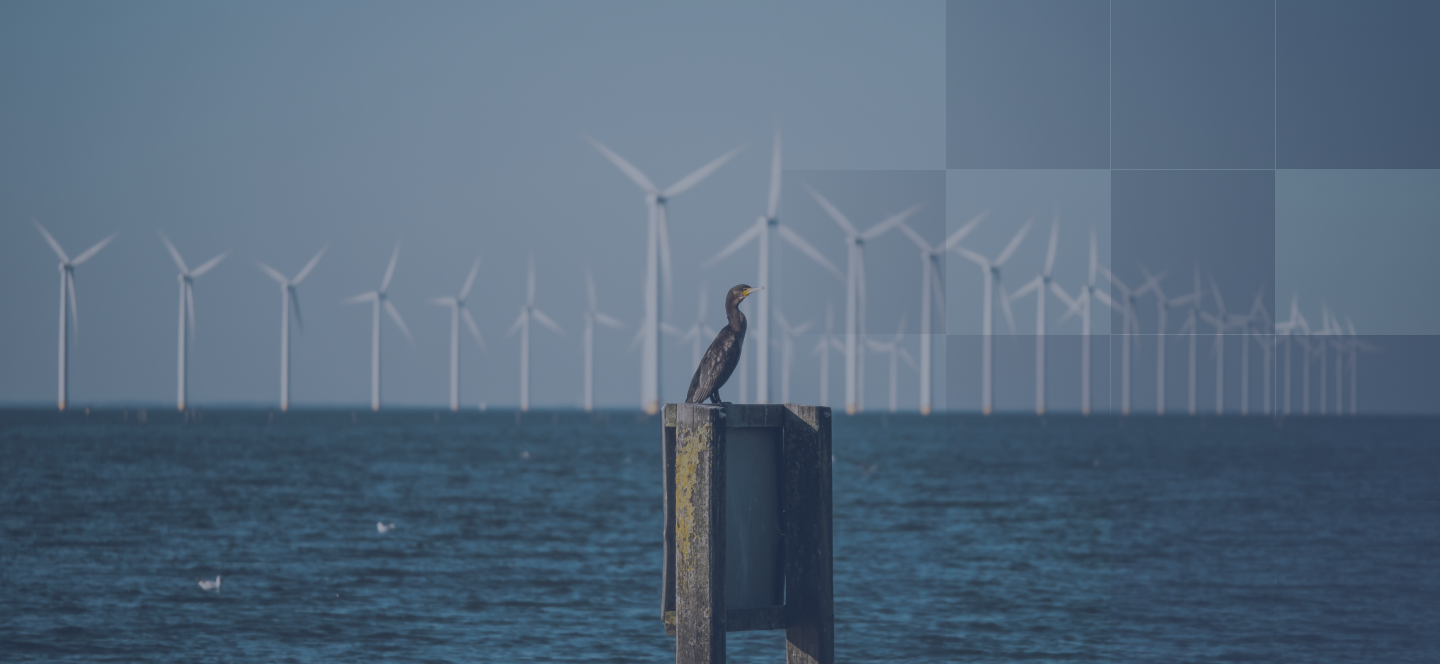Following the launch of the report ‘Avoidance and Minimisation of Environmental Impacts from Offshore Wind and Grid Infrastructure’, RGI and OCEaN – North & Baltic Seas kicked off a new webinar series to present highlights from the report and lessons learned from OCEaN’s exploration of the topic of mitigation. In our first webinar on 23 January, participants heard from report authors and OCEaN Members as they presented the publication’s key findings, knowledge gaps, and recommendations.
Introduction
Europe’s northern seas are bustling with activities, from transport to fishing, aquaculture, recreation, and energy production. At the same time, the rich variety of species and habitats in these waters are increasingly at risk. Healthy and resilient marine ecosystems are needed to not only support human activities, but also to maintain the climate of our planet by acting as its largest carbon sink. Therefore, urgent action is necessary to protect and restore our seas.
RGI and OCEaN advocate for the simultaneous deployment of offshore wind, grid development, and nature protection and restoration in European seas. This is crucial to achieve a sustainable energy transition. To facilitate offshore development without compromising ecological integrity, avoidance of environmental impacts must be prioritised, with unavoidable impacts minimised as much as possible throughout the whole lifecycle of offshore wind and grid infrastructure.
This can be achieved by implementing mitigation measures, with an increasing number of options available. OCEaN – North & Baltic Seas has collected over 80 of these measures to increase the understanding of the potential environmental impacts associated with bottom-fixed offshore wind and grid developments in the Northern and Baltic Seas and highlight known solutions. This work has been guided by the extensive knowledge of OCEaN Members and their experience developing offshore wind and grid infrastructure over the past 20 years. In October 2024 they published their findings in the report ‘Avoidance and Minimisation of Environmental Impacts from Offshore Wind and Grid Infrastructure‘ and a database on the OCEaN website to provide inspiration and guidance towards achieving a nature friendly energy transition at sea.
Now’s your chance to hear from the report authors and OCEaN Members who contributed their knowledge! Throughout 2025 we’ll be holding webinars to shine a spotlight on key elements of the report including ‘best practices’, recommendations, and knowledge gaps.
The first webinar in this series took place on Thursday 23 January 2025, 11:00-12:15 CET. Our speakers highlighted the report’s main findings, presented OCEaN’s mitigation measures database, and outlined knowledge gaps that require further research.
Event Speakers
Ana Miljanović Rusan
Manager – Offshore Energy and Nature | Renewables Grid Initiative
Pim Somers
Project Lead Nature-Friendly Offshore Energy | the North Sea Foundation
Wietske van Erp Taalman Kip
Lead Licensing Engineering & Services – Large Projects Offshore | TenneT
Marija Nilova
Offshore Environmental Manager | Iberdrola
watch the Recording
contact
Charlotte Mueller
charlotte[at]renewables-grid.euManager – Communication



